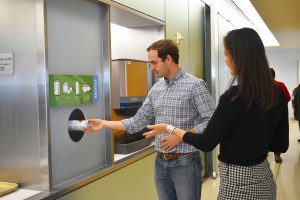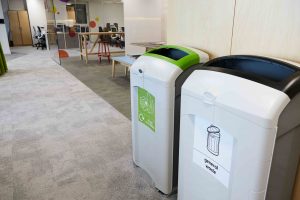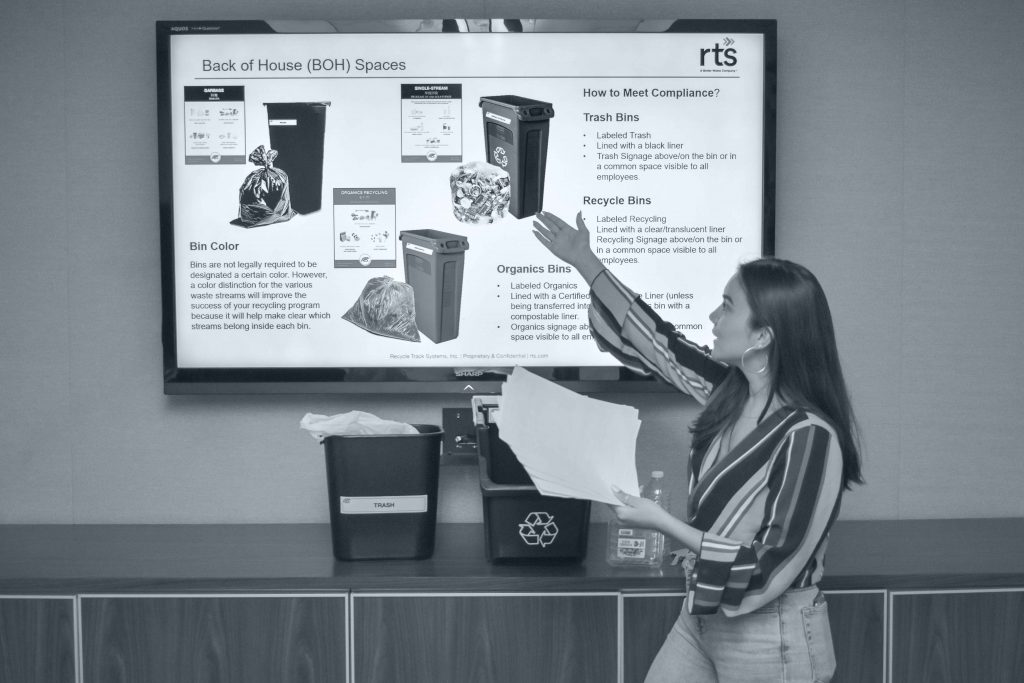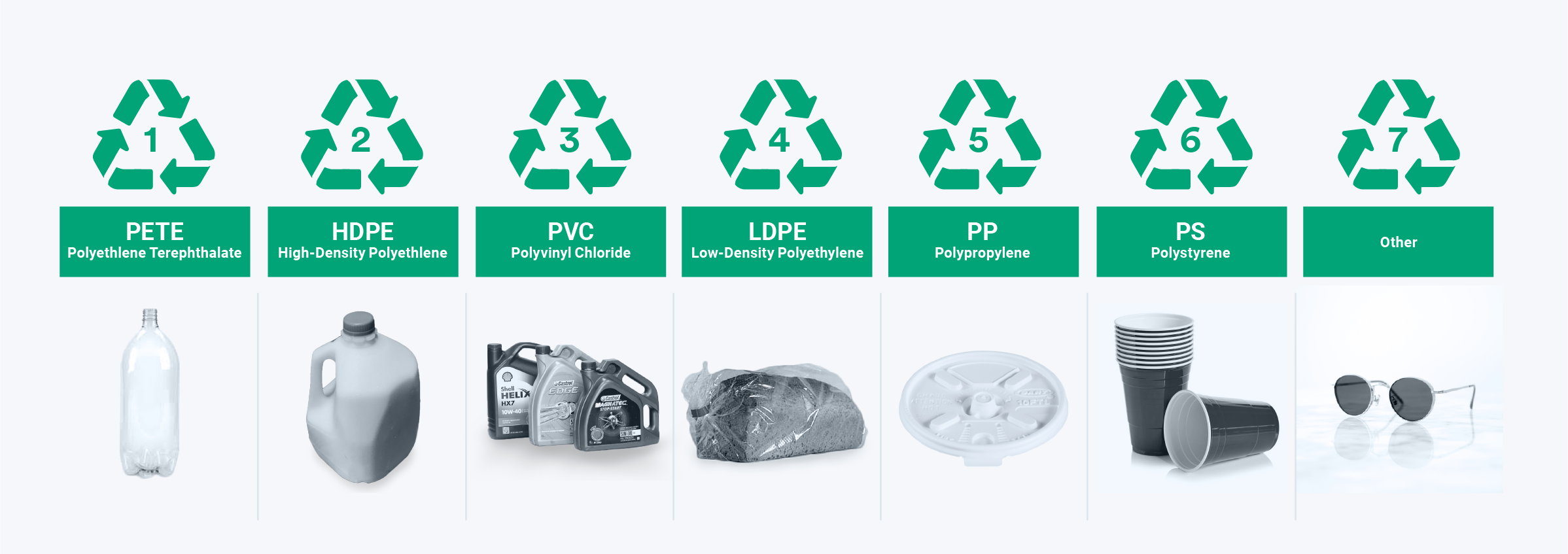Education is the backbone of sustainability for businesses. Whether it’s increasing awareness of environmental impact or providing updates on recycling programs, sustainability education is among the key drivers of achieving environmental goals.
In fact, from the biggest conceptual framework to the smallest  everyday action, sustainability and recycling education in businesses illuminates not only why we need to change our current habits and practices, but also how.
everyday action, sustainability and recycling education in businesses illuminates not only why we need to change our current habits and practices, but also how.
For businesses looking to boost education and awareness on their premises or with staff, we have gathered the tools and knowledge required to help achieve your sustainability goals. Here we spoke with Nicolle Portilla, RTS Sustainability Operations Analyst, to examine what a sustainability program could look like for any business.
1. What should sustainability education programs entail? And, how do you address specific industries or businesses?
We service such a wide variety of clients that we want to make sure each sustainability education program is tailored to their specific industry and business. An educational program for a hotel is going to be different from an office building, and we want to set our clients up with the right tools and information that will specifically impact them, their business, and their customers.
If we’re aware of a specific challenge on-site, we’ll include that as part of our program to help address the issue at hand and provide potential solutions. It’s also important to customize the program to the audience, i.e. using a different approach for janitorial staff, who is often handling collection from waste generation areas, to employees in a traditional office that need to know where to place their waste.
Sustainability education programs tackle how to streamline waste separation to ensure the highest amount of material is diverted from landfills. For example, we collaborate with our clients to design their waste generation and staging areas so that it’s easy and approachable for each employee on-site to properly dispose of recyclable and compostable materials.
We also provide guidance for our clients to make smart investments in reusables that help them reduce the amount of waste generated on-site instead of focusing only on proper disposal.
2. Do you have a curriculum?
The curriculum is based on the type and level of engagement required. In addition, extending beyond back-of-the house staff and educating tenants or employees, whether that be trivia, zero-waste prizes, or waste-sorting games, as it helps keep employees engaged and is a more fun approach than a traditional slideshow presentation.
3. What is the average level of education among employees regarding sustainability issues?
The level of knowledge varies among clients. Many times, operations and facilities staff take on the additional responsibility of maintaining sustainability programs on-site but may not have formal education in sustainability or waste-related experience.
This can pose issues when it comes to tackling sustainability and waste-diversion related issues. For example, most employees know that they should recycle a water bottle but may not know that the bottle needs to be clean and empty, or that types of plastics are treated differently. Or, they know that paper is recyclable, but not that paper has to remain clean and dry to hold value.
As sustainability continues to become an integral part of many companies, I think we’ll start to see more employees with an expansive interest in or knowledge of waste issues and how to resolve them.
 4. What are the most common questions you get when setting up sustainability programs?
4. What are the most common questions you get when setting up sustainability programs?
Most of our clients have a general understanding of what is recyclable but have doubts when it comes to commonly mis-recycled items like coffee cups, pizza boxes, and small plastics. It’s our responsibility to help our clients understand why certain items may seem recyclable but actually aren’t due to contamination, chemical makeup, or facility infrastructural limitations.
5. Are employees generally open to more sustainability and recycling information and education?
As businesses continue to push and advocate for more sustainable practices, employees are interested in learning more about sustainability and recycling in general. Employees also tend to be interested in recycling information and sustainability education because of the conflicting information surrounding recycling. Employees are often interested in why something is recyclable versus why it isn’t.
Understanding the process behind recycling seems to be beneficial in shifting behavioral changes that often lead to contamination or improper disposal of recyclable or compostable materials. At RTS we like our clients to see the recycling process in action by coordinating facility tours. It’s one thing to hear about how materials are recycled, it’s a very different learning experience to actually see and learn about it for yourself. We consistently receive positive feedback from clients that have walked the floor of a recycling facility with us.
6. Do you feel sustainability education programs help to engage employees with recycling issues?
In-person sustainability education programs and training work well to engage employees with recycling and sustainability issues. There tends to be a ton of misinformation that leads to confusion at work (and at home).
Many people are interested and care about these issues but don’t have access to educational resources to guide them on the right way to recycle or compost. In-person sustainability education programs give employees the opportunity to ask questions and dispel the myths.
It’s also important to maintain a recurring educational program for employees to help maintain proper sorting habits. Try to engage employees in a quarterly or bi-annual recycling training to keep recycling best practices top of mind in the workspace. Engage your waste and recycling hauler to lead a recycling training or nominate a recycling leader within each department to lead the educational trainings on a recurring basis. Keeping employees engaged in the program year-round will help maintain a program with structure.
With most of us working from home, educational webinars and blog posts can also be a great resource to provide clarity for commonly asked questions regarding successful waste diversion.
For more information on how RTS can help your business leverage education to become more sustainable, contact our team of TRUE Advisors today who will discuss your specific needs and how they can be addressed. Additionally, for more information on recycling, sustainability, Zero Waste, and the circular economy, explore our resources here.


